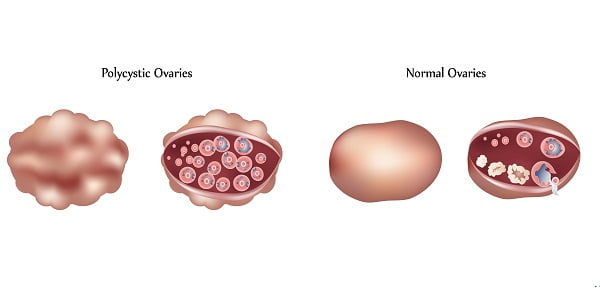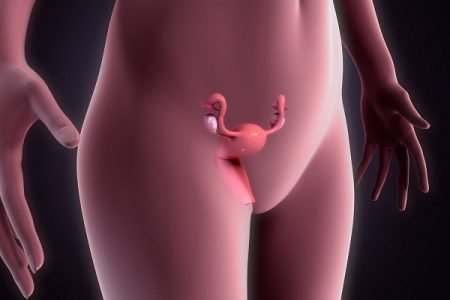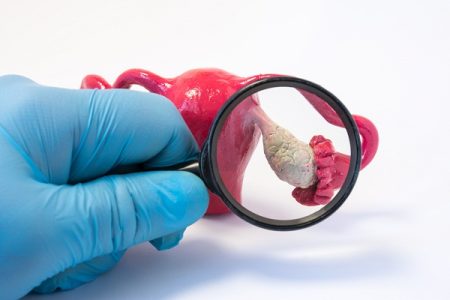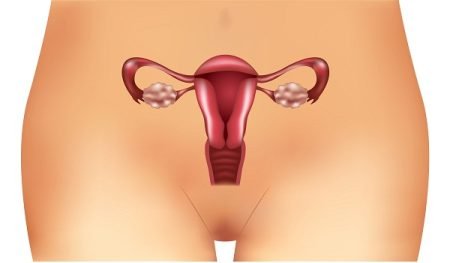What Causes PCOS (Polycystic Ovary Syndrome)?
- Updated on: Jul 9, 2024
- 3 min Read
- Published on Sep 27, 2019

Polycystic ovary syndrome or PCOS is a hormonal problem which affects females in their childbearing years. Many women are not even aware that they are suffering from this disease.
According to a study, about 70% of women suffering from PCOS had not yet been diagnosed. Ovaries are the reproductive organs that directly get affected with PCOS.

Polycystic ovary and normal ovary differences
The main causes of PCOS still appear to be unclear but it is said to be triggered by lifestyle, obesity, environment and family history.
Causes of PCOS
The reported reasons for developing polycystic ovary syndrome are:
- Family history and genes
- Excess insulin and insulin resistance
- Lifestyle
- Low-grade inflammation
- Hormone imbalance
Family history
There are about 50% chances that daughters and sisters (immediate relatives) of women with PCOS will develop PCOS. A very common disease in families with PCOS is type 2 diabetes. However, there is no clue of any gene contributing directly to PCOS. This inferred that linkage might be complex or may involve multiple genes.
Excess Insulin and Insulin resistance
The main function of insulin is to keep a track and regulate blood sugar rise after eating. If a woman is insulin resistant, her body might not effectively use the available insulin to check glucose levels. As the available insulin is not able to work efficiently, the body will get induced to produce more insulin.
High levels of insulin help in the production of the male hormone in ovaries. This leads to excessive hair growth on face and body, acne and menstruation problem. More than 70% women with PCOS suffer from insulin resistance which also contributes to cardiovascular disease such as coronary artery disease, and type 2 diabetes.
Lifestyle
Insulin resistance is caused by lifestyle factors like being overweight and physically inactive. Women with PCOS are more likely to have insulin resistance due to genetic factors. Women with PCOS can have:
- Insulin resistance due to being obese and physically inactive
- Insulin resistance due to genetic factors
- Being obese
- Combination of all the factors
The linkage is still not clear but being obese adds on to the problem. Weight above the normal worsens insulin resistance and symptoms of PCOS. Some women with PCOS report that when they have a healthy weight, symptoms of PCOS like irregular menstruation and excessive bleeding drop down. Symptoms may appear once they gain weight.
A healthy and nutritious food with regular exercise can help assist PCOS and prevent it.
Low-grade inflammation
White blood cells produce substances that fight infection and foreign bodies when you have inflammation. Research shows some women have low-grade inflammation that stimulates ovaries to produce androgens. This adds on to the problem of PCOS.
Hormone imbalance
Hormone problem can be categorized as the leading cause of PCOS. Abnormally high levels of male hormone (androgen) in females cause acne, hirsutism and other PCOS symptoms. Many women with PCOS are reported to have an imbalance in certain hormones:
- Increased level of testosterone (male hormone)
- Increased level of luteinizing hormone (ovulation stimulator, may have abnormal affect when in high level)
- Decreased level of sex hormone-binding globulin (protein that binds and reduces effect of testosterone)
- Increased level of prolactin (breast milk-stimulating hormone)
The exact reason of hormone changes is still unknown. It is suggested that the problem starts itself in ovaries or in other glands that stimulate it.











